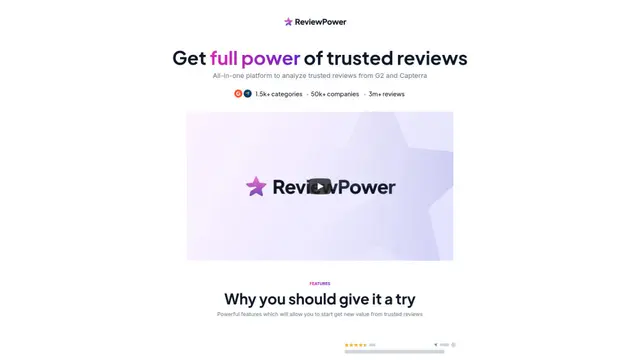Open Knowledge Maps
Open Knowledge Maps 是全球最大的基於人工智能的科學知識視覺搜索引擎,顯著提高了研究成果的可見性。
https://openknowledgemaps.org/?utm_source=aipure

產品資訊
更新時間:2025年07月16日
Open Knowledge Maps 每月流量趨勢
Open Knowledge Maps 的流量下降了 17.5%,最近一個月的訪問量為 113K。儘管 Peter Kraker 在 BiblioCon 2025 上展示了 VisConnect,但該平台並未看到流量增長,可能是由於用戶對新功能的參與度有限或競爭加劇所致。
什麼是 Open Knowledge Maps
Open Knowledge Maps 是一個致力於徹底改變科學知識發現的慈善非營利組織。總部位於奧地利維也納,它運營著全球最大的研究視覺搜索引擎,網址為 openknowledgemaps.org。該平台允許用戶創建跨所有學科的研究主題的互動知識地圖,通過一目了然地顯示主要領域,並附有相關論文和概念,提供即時的視覺概覽。Open Knowledge Maps 旨在創建一個包容、可持續和公平的科學知識發現基礎設施,任何人都可以使用。
Open Knowledge Maps 的主要功能
Open Knowledge Maps 是全球最大的基於人工智能的科學知識視覺搜索引擎。它創建互動知識地圖,提供研究主題的即時概覽,一目了然地展示主要領域及相關論文和概念。作為非營利組織,它旨在通過開放、協作的平台提高科學和社會對研究成果的可見度。
視覺知識地圖: 生成研究主題的互動視覺概覽,將相似的論文和概念聚集在一起。
人工智能驅動的搜索: 使用人工智能分析和組織來自各種來源的科學文獻。
開放科學原則: 作為非營利組織,致力於開放獲取和平台的協作開發。
自定義整合: 提供服務,讓組織將 Open Knowledge Maps 組件嵌入到其自己的發現系統中。
Open Knowledge Maps 的使用案例
文獻回顧: 研究人員可以快速獲得新領域的概覽,並識別關鍵論文和概念。
跨學科研究: 幫助研究人員發現不同領域之間的聯繫,並識別潛在的合作機會。
圖書館服務: 圖書館可以通過將 Open Knowledge Maps 整合到其目錄中來增強其發現工具。
教育: 學生可以使用它來理解研究領域的結構,並找到相關的學習資源。
優點
提供研究主題的快速視覺概覽
提高研究成果的可見度
開放和協作的平台
與現有發現系統整合
缺點
僅限於選定數據源的前 100 份文件
質量取決於算法和元數據的準確性
依賴集體資金努力以實現可持續性
如何使用 Open Knowledge Maps
前往 Open Knowledge Maps 網站: 在您的網絡瀏覽器中訪問 https://openknowledgemaps.org/
輸入搜索詞: 在主頁的搜索框中輸入研究主題或關鍵詞
選擇數據源: 在 BASE(比勒費爾德學術搜索引擎)或 PubMed 之間選擇您的數據源
點擊 '創建地圖': 點擊 '創建地圖' 按鈕以生成您主題的視覺知識地圖
探索知識地圖: 地圖將以氣泡形式顯示主要主題領域,每個區域附有相關論文和概念
點擊氣泡以展開: 點擊任何氣泡以查看更多詳細信息和該子主題的相關論文
查看論文詳情: 點擊單個論文標題以查看摘要和其他元數據
細化您的搜索: 使用左側邊欄的過濾器按年份、語言或內容類型細化結果
保存或分享您的地圖: 使用頂部菜單中的選項保存、導出或分享您的知識地圖
Open Knowledge Maps 常見問題
Open Knowledge Maps 是世界上最大的基於人工智能的科學知識視覺搜索引擎。它創建知識地圖,提供研究主題的即時概覽,一目了然地展示主要領域和相關論文。
Open Knowledge Maps 網站分析
Open Knowledge Maps 流量和排名
113.1K
每月訪問量
#227424
全球排名
#49
類別排名
流量趨勢:Jul 2024-Jun 2025
Open Knowledge Maps 用戶洞察
00:02:13
平均訪問時長
5.15
每次訪問的頁面數
39.65%
用戶跳出率
Open Knowledge Maps 的主要地區
ID: 43.99%
CN: 5.12%
BR: 2.7%
DE: 2.59%
GB: 2.46%
Others: 43.14%











